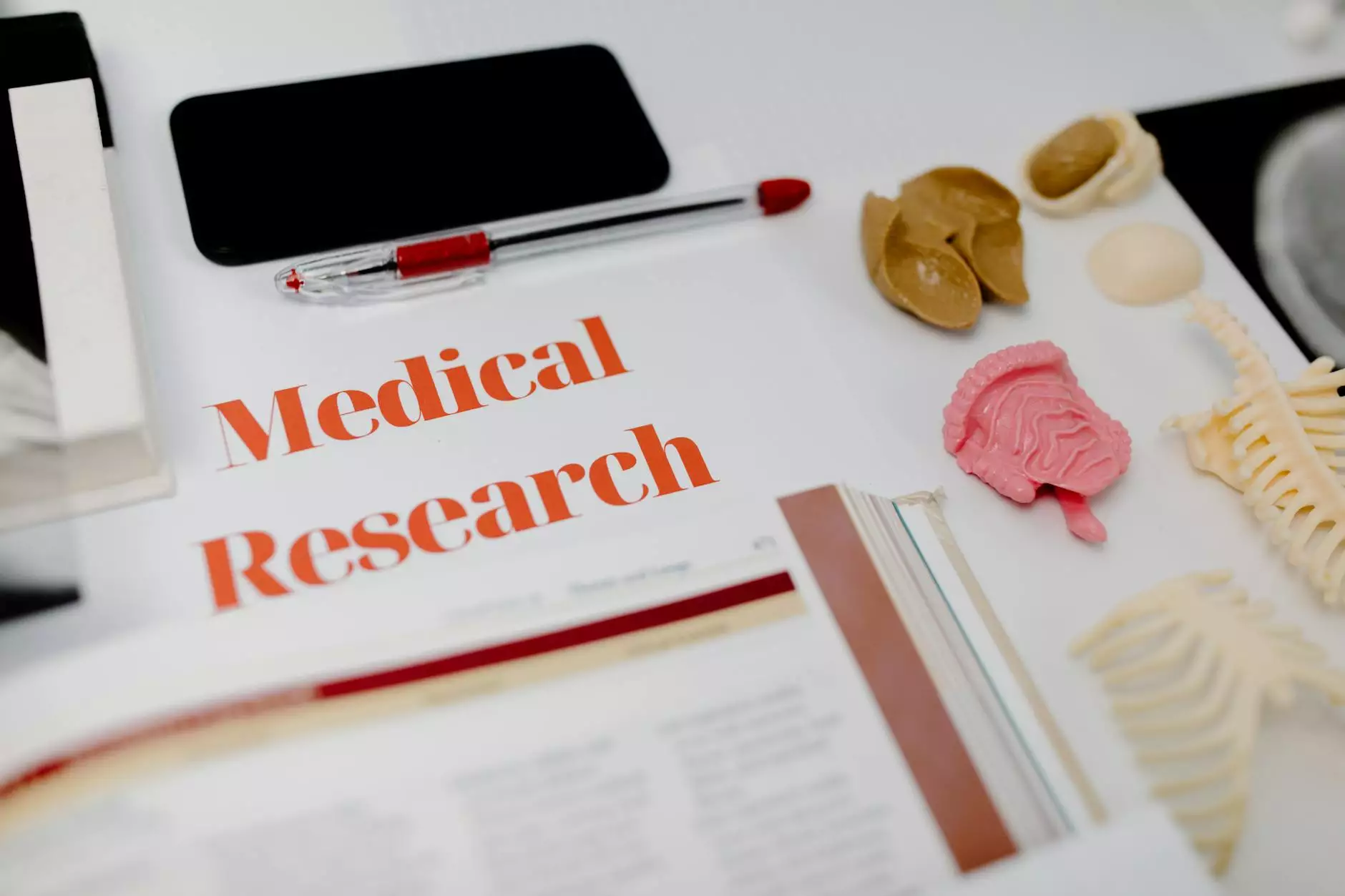Understanding Endometriosis: The Role of Your Endometriosis Specialist

What is Endometriosis?
Endometriosis is a chronic and often painful condition that occurs when tissue similar to the lining of the uterus grows outside of it. This tissue can cause various symptoms, including severe pelvic pain, discomfort during menstruation, and even infertility. As a common reproductive health issue affecting approximately 1 in 10 women of reproductive age, understanding endometriosis is crucial for managing it effectively.
Understanding the Symptoms of Endometriosis
The symptoms of endometriosis can vary widely from woman to woman. Some of the most common symptoms include:
- Pelvic Pain: Often the most significant symptom, pelvic pain from endometriosis can be debilitating.
- Severe Menstrual Cramps: Women may experience exceptionally intense cramps that may begin before menstruation and extend several days into the cycle.
- Unusual Bleeding: This may include heavy periods (menorrhagia) or bleeding between periods.
- Pain During Intercourse: Endometriosis can cause pain during or after sex, adversely affecting intimacy and emotional well-being.
- Pain with Bowel Movements or Urination: These symptoms are more common during menstrual periods.
- Infertility: Endometriosis is found in many women who are infertile. It can hinder the process of conception but can also be managed by specialists.
If you experience any of these symptoms, consulting an endometriosis specialist is crucial for accurate diagnosis and effective treatment.
Why Consult an Endometriosis Specialist?
A endometriosis specialist plays a critical role in diagnosing and managing endometriosis. Their expertise is essential because:
- Comprehensive Diagnosis: Specialists utilize advanced imaging techniques and laparoscopic surgery to provide a definitive diagnosis.
- Personalized Treatment Plans: They offer tailored treatment plans, which may include medication, hormone therapy, or surgical options based on the individual's symptoms and health goals.
- Multidisciplinary Approach: An endometriosis specialist often collaborates with a network of healthcare professionals to address all aspects of a patient’s health.
- Support and Resources: Besides medical care, they can provide educational resources and support groups to help women manage their condition.
Diagnosis of Endometriosis
The diagnosis of endometriosis typically involves a comprehensive evaluation. An endometriosis specialist will:
- Perform a Pelvic Exam: The specialist will check for cysts or scars behind the uterus.
- Utilize Imaging Tests: Ultrasound and Magnetic Resonance Imaging (MRI) are common tools to detect endometrial tissue outside the uterus.
- Conduct Laparoscopy: This minimally invasive surgery allows for a direct look at the reproductive organs and the collection of tissue samples.
- Review Medical History: Understanding symptoms, menstrual history, and family history can provide critical context.
By adopting this thorough approach, specialists can more accurately identify endometriosis and its severity.
Treatment Options Available Through an Endometriosis Specialist
Treatment for endometriosis varies based on the severity of the disease, symptoms, and individual health goals. An endometriosis specialist can offer:
1. Medications
Medications are often the first line of treatment. Some options include:
- Nonsteroidal Anti-Inflammatory Drugs (NSAIDs): These help alleviate pain.
- Hormonal Therapy: This can help manage or alleviate symptoms by reducing or eliminating menstruation.
- Birth Control Pills: Often prescribed to regulate hormones and reduce menstrual flow.
2. Surgical Options
For severe cases, surgery may be necessary. Potential surgical interventions include:
- Laparoscopy: A procedure that allows the surgeon to remove endometrial tissue.
- Hysterectomy: In severe cases, the removal of the uterus may be recommended.
- Ovarian Cyst Removal: If cysts form on the ovaries due to endometriosis, their removal may be necessary.
3. Lifestyle and Home Remedies
Alongside medical treatments, lifestyle changes can also help manage symptoms:
- Regular Exercise: Helps relieve stress and can reduce pain.
- Healthy Diet: Maintaining a balanced diet rich in omega-3 fatty acids and antioxidants can help.
- Stress Management Techniques: Yoga, meditation, and breathing exercises can alleviate stress and pain.
The Importance of Early Intervention with an Endometriosis Specialist
Early diagnosis and treatment of endometriosis can significantly improve a patient’s quality of life. Working with an endometriosis specialist allows for timely intervention, which can prevent further complications such as:
- Chronic Pain: Unmanaged endometriosis can lead to debilitating pain over time.
- Fertility Issues: Early treatment can often preserve fertility.
- Emotional and Mental Health Struggles: Endometriosis can be associated with feelings of isolation and depression; early support can mitigate these issues.
With prompt intervention, women can take charge of their health and lead fulfilling lives.
How to Choose the Right Endometriosis Specialist
Finding the right specialist is vital for effective care. Here are some tips:
- Check Qualifications: Look for board-certified specialists in gynecology with experience in endometriosis.
- Research Their Approach: Different specialists may have varying approaches; find one that resonates with your treatment philosophy.
- Read Patient Reviews: Testimonials can provide insight into the experiences of other patients.
- Ensure Communication: Your specialist should explain your condition, answer your questions, and make you feel comfortable.
Ongoing Research and Future Directions in Endometriosis Treatment
The field of endometriosis research is continually evolving, with ongoing studies focused on better understanding the disease. Current areas of interest include:
- Genetic Research: Identifying genetic markers that may predispose women to endometriosis.
- New Drug Therapies: Innovative treatments are being explored to manage symptoms more effectively.
- Holistic Approaches: Integrating alternative therapies and lifestyle adjustments into treatment plans.
As we learn more about this complex condition, women can expect increasingly effective management strategies tailored to their needs.
Conclusion: Empowering Women Through Knowledge and Care
Endometriosis can significantly impact a woman’s life, but with the right support from an endometriosis specialist, affected individuals can navigate their journey with confidence. By understanding the symptoms, seeking early intervention, and exploring treatment options, women can take charge of their health and well-being. Remember, you are not alone in this journey, and there are resources and specialists available to help you manage this condition effectively.
For further information on endometriosis and to schedule a consultation, visit drseckin.com.









